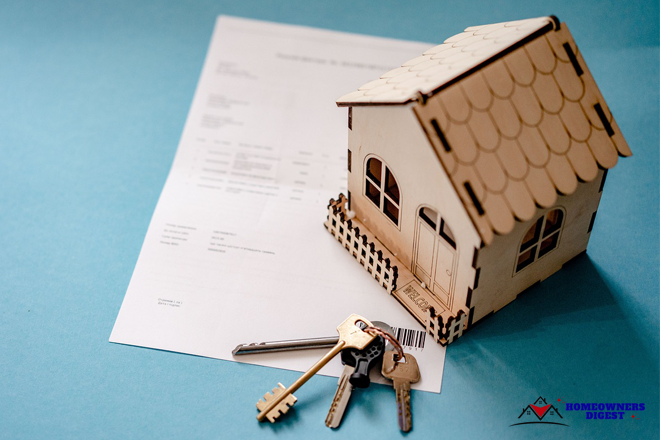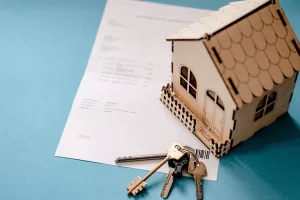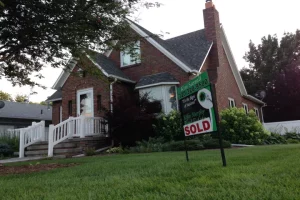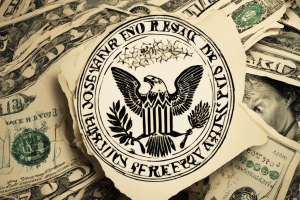
According to one analyst, mortgage interest rates rose again this week, inching closer to the 7% benchmark that could become the “new normal.”
According to Freddie Mac, mortgage rates increased across the board last week, with the average fixed rate on a 30-year mortgage reaching a 20-year high of 6.92%. The 30-year mortgage rate has increased by a quarter-point compared to the previous week and continues to inch closer to 7%.
In addition, 15-year fixed mortgage rates surpassed 6%, while adjustable mortgage rates increased by 0.5 percentage points — each term is at its highest level since 2008. Current mortgage interest rates as of October 13 are as follows:
- 30-year fixed: 6.92% plus 0.8 percent (up from 6.66% one week ago and 3.05% one year ago).
- 15-year fixed: 6.09% plus 1.1 points (up from 5.9% one week ago and 2.3% one year ago).
- 5/1-year adjustable: 5.81% plus 0.2 point (up from 5.36 percent a week ago and 2.54 percent a year ago).
The 30-year fixed-rate mortgage reached its highest level since April of 2002.” “Rates resumed their record-setting climb this week, with the 30-year fixed-rate mortgage reaching its highest level since April of 2002. We continue to see a tale of two economies in the data: strong job and wage growth are keeping consumers' balance sheets positive, while lingering inflation, recession fears and housing affordability are driving housing demand down precipitously.
— Sam Khater, Freddie Mac's senior economist, in a statement released on October 13
This week's mortgage rate data follows a Bureau of Labor Statistics inflation report that was worse than anticipated. Last month, the consumer price index remained persistently high despite the Federal Reserve's efforts to curb inflation through a series of dramatic rate hikes. Prices grew 8.2% annually through September, remaining significantly above the Fed's annual inflation objective of 2%.
As predicted in July by Lawrence Yun, chief economist of the National Association of Realtors, mortgage rates are likely to remain elevated as long as red-hot inflation continues. Yun predicted last week, prior to the BLS's release of the most recent data, that interest rates will remain near the present “resistance point” of 7%, though it is possible that they may hit a new benchmark of 8.5%.
Yun tells the Bucks County Association of Realtors in Pennsylvania, “We don't want to see a break out of that second barrier and a rise, because 8.5% mortgage rates are something we certainly do not want to see.”
Nonetheless, Yun says he hopes (and expects) that mortgage rates will remain around 7%, fluctuating upwards and downwards around this benchmark. “An interest rate of 7 percent might become the new norm,” he continues.
Weekly Indicator: Golden Handcuffs Help First-Time Buyers
You may have heard the saying that homeowners are wearing “golden handcuffs.” This refers to the fact that they are tethered to their property – and, more crucially, their mortgage – unwilling to sell and trade a possible sub-3% interest rate for a rate close to 7%. Due to the lack of motivation for current homeowners to relocate, first-time homebuyers have a competitive advantage in the current housing market.
According to a new research from the online real estate marketplace Zillow, 45% of purchasers are acquiring their first house this year, up from 37% last year and in line with pre-recession levels. According to the report, higher mortgage interest rates are preventing repeat buyers from entering the housing market.
In the analysis, Zillow population scientist Manny Garcia states, “First-time buyers currently appear to be making relative gains as high mortgage interest rates disproportionately encourage current homeowners to stay put.” The decrease in the number of homes entering the market suggests that homeowners are likely comparing their current low mortgage rate to current rates and deciding not to move.
The report alludes to a shift away from the intensely competitive sellers market of the past two years, offering first-time homeowners “more options, more time, and greater bargaining power.”
Higher mortgage rates may provide homebuyers with some relief by lowering property prices. And despite the fact that the identical rate increases have thrown a gut hit to purchasers' purchasing budgets, this is more likely to affect repeat homebuyers than first-time homebuyers.
“While rising mortgage rates negatively impact affordability for all buyers, first-time buyers may be less deterred by higher rates because they compare a monthly mortgage payment to rent,” adds Garcia.
According to this month's consumer price index, the annual increase in average rentals for primary dwellings was 7.2%. With a fixed mortgage payment, purchasers may escape the unpredictability of annual rent increases.

James Smith is our editor. He is an accomplished and versatile news writer with over a decade of experience covering a wide range of topics, including politics, business, and real estate. Throughout his career, James has been dedicated to uncovering the truth and presenting unbiased, factual reporting to his audience.







